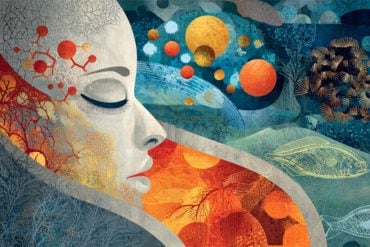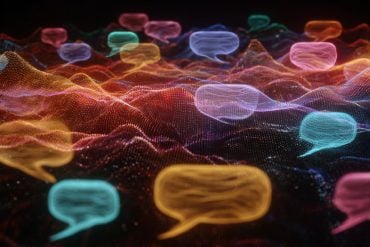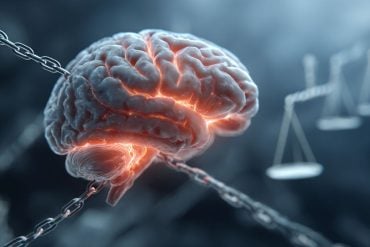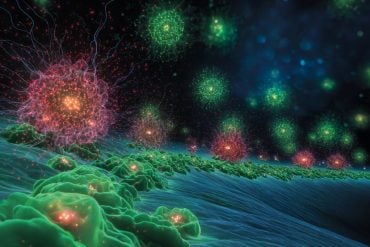Summary: According to a new study, researchers were able to reduce the urge to drink alcohol in mice by blocking an immune response in the brain. The study reveals a link between the immune system and the motivation to indulge in drinking at night.
Source: University of Adelaide.
Researchers from the University of Adelaide have found a new link between the brain’s immune system and the desire to drink alcohol in the evening.
In laboratory studies using mice, researchers have been able to switch off the impulse to drink alcohol by giving mice a drug that blocks a specific response from the immune system in the brain.
Now published in the journal Brain, Behavior and Immunity, this research is one of the first of its kind to show a link between the brain’s immunity and the motivation to drink alcohol at night.
“Alcohol is the world’s most commonly consumed drug, and there is a greater need than ever to understand the biological mechanisms that drive our need to drink alcohol,” says lead author Jon Jacobsen, PhD student in the University of Adelaide’s Discipline of Pharmacology.
“Our body’s circadian rhythms affect the ‘reward’ signals we receive in the brain from drug-related behaviour, and the peak time for this reward typically occurs during the evening, or dark phase. We wanted to test what the role of the brain’s immune system might have on that reward, and whether or not we could switch it off.”
The researchers focused their attention on the immune receptor Toll-like receptor 4 (TLR4). They administered the drug (+)-Naltrexone (pronounced: PLUS-NAL-TREX-OWN), which is known to block TLR4, to mice.
“Our studies showed a significant reduction in alcohol drinking behaviour by mice that had been given (+)-Naltrexone, specifically at night time when the reward for drug-related behaviour is usually at its greatest,” Mr Jacobsen says.
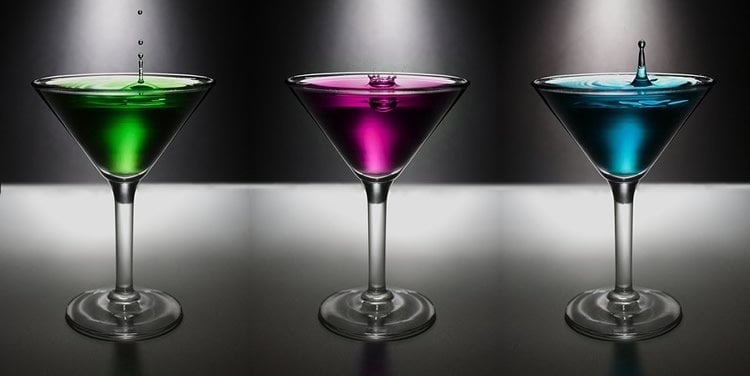
“We concluded that blocking a specific part of the brain’s immune system did in fact substantially decrease the motivation of mice to drink alcohol in the evening.”
Senior author Professor Mark Hutchinson, Director of the ARC Centre of Excellence for Nanoscale BioPhotonics at the University of Adelaide and leader of the Neuroimmunopharmacology lab in which this work was conducted, says these findings point to the need for further research to understand the implications for drinking behaviour in humans.
“Our study is part of an emerging field which highlights the importance of the brain’s immune system in the desire to drink alcohol. Given the drinking culture that exists in many nations around the world, including Australia, with associated addiction to alcohol and related health and societal issues, we hope our findings will lead to further studies.”
Funding: This research has been funded by the Australian Research Council (ARC), the US National Institute on Drug Abuse (NIDA) and the National Institute of Alcohol Abuse and Alcoholism.
Source: University of Adelaide
Image Source: NeuroscienceNews.com image is in the public domain.
Original Research: Abstract for “The efficacy of (+)-Naltrexone on alcohol preference and seeking behaviour is dependent on light-cycle” by Jonathan Henry W. Jacobsen, Femke T.A. Buisman-Pijlman, Sanam Mustafa, Kenner C. Rice, and Mark R. Hutchinson in Brain, Behavior, and Immunity. Published online August 30 2017 doi:10.1016/j.bbi.2017.08.021
[cbtabs][cbtab title=”MLA”]University of Adelaide “Immune System Linked to Alcohol Drinking Behavior.” NeuroscienceNews. NeuroscienceNews, 15 September 2017.
<https://neurosciencenews.com/immune-system-alcohol-7494/>.[/cbtab][cbtab title=”APA”]University of Adelaide (2017, September 15). Immune System Linked to Alcohol Drinking Behavior. NeuroscienceNews. Retrieved September 15, 2017 from https://neurosciencenews.com/immune-system-alcohol-7494/[/cbtab][cbtab title=”Chicago”]University of Adelaide “Immune System Linked to Alcohol Drinking Behavior.” https://neurosciencenews.com/immune-system-alcohol-7494/ (accessed September 15, 2017).[/cbtab][/cbtabs]
Abstract
The efficacy of (+)-Naltrexone on alcohol preference and seeking behaviour is dependent on light-cycle
Circadian rhythm affects drug-induced reward behaviour and the innate immune system. Peaks in reward-associated behaviour and immune responses typically occur during the active (dark) phase of rodents. While the role of the immune system, specifically, Toll-like receptor 4 (TLR4, an innate immune receptor) in drug-induced reward is becoming increasingly appreciated, it is unclear whether its effects vary according to light-cycle. Therefore, the aim of this study was to characterise the effects of the phase of the light-cycle and the state of the innate immune system on alcohol reward behaviour and subsequently determine whether the efficacy of targeting the immune component of drug reward depends upon the light-cycle.
This study demonstrates that mice exhibit greater alcohol-induced conditioned place preference and alcohol two-bottle choice preference during the dark cycle. This effect overlapped with elevations in reward-, thirst- and immune-related genes. Administration of (+)-Naltrexone, a TLR4 antagonist, reduced immune-related gene mRNA expression and alcohol preference with its effects most pronounced during the dark cycle. However, (+)-Naltrexone, like other TLR4 antagonists exhibited off-target side effects, with a significant reduction in overall saccharin intake – an effect likely attributable to a reduction in tyrosine hydroxylase (Th) mRNA expression levels. Collectively, the study highlights a link between a time-of-day dependent influence of TLR4 on natural and alcohol reward-like behaviour in mice.
“The efficacy of (+)-Naltrexone on alcohol preference and seeking behaviour is dependent on light-cycle” by Jonathan Henry W. Jacobsen, Femke T.A. Buisman-Pijlman, Sanam Mustafa, Kenner C. Rice, and Mark R. Hutchinson in Brain, Behavior, and Immunity. Published online August 30 2017 doi:10.1016/j.bbi.2017.08.021



